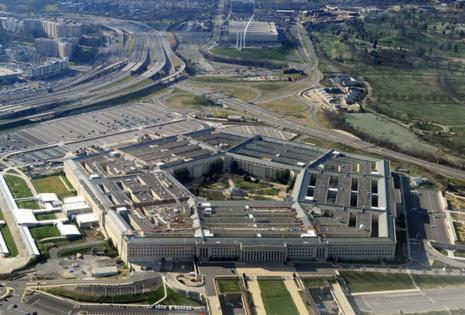Commentary: 'Department of War' is a more accurate label than 'Defense'
Published in Op Eds
“Defense is too defensive,” noted President Donald Trump recently, as he announced that the Department of Defense would be renamed the Department of War.
More aggressive rhetoric can lead to more aggressive action, and this is a serious concern. But Trump’s move away from the word “defense” is also an opportunity for Americans to reckon more honestly with the nation’s use of military power. “Department of War” cuts through the rhetoric America has used for decades to claim that it is defending peace even as it continuously wages wars.
“Defense” makes military budgets sound untouchable, because defending the nation does not seem optional. But “war” sounds more costly and perhaps more difficult to justify. The Department of Defense received its name in 1949, and spending on the military rose exorbitantly in the following years — tripling by 1951, and accounting for three-quarters of the federal budget by 1955.
The Department of Defense’s 2025 budget is $849.9 billion. Americans who object to such an expense may find it easier to rally support for cutting funds from a Department of War.
The proposed new name would also express continuity with American history — though not the history Trump has in mind. The original Department of War was established by Congress in 1789, despite the protests of those such as Thomas Jefferson who thought the U.S. should maintain a professional army only in wartime.
The newly formed department was immediately made responsible for U.S. relations with Native Americans. It spread an archipelago of Army forts westward and determined how many troops should guard them. Settlers followed these forts, giving the secretary of War a decisive role in the colonization of the continental United States — and beyond.
“The fact that the United States was a former colony did not prevent it from acquiring colonies,” observes the historian A.G. Hopkins. The most populous of these possessions was the Philippines, which the Department of War was tasked with invading in 1899. It did so by deploying the same brutal strategies it had used against Native Americans.
Brutality continued in the “Department of Defense” era. But the U.S. euphemized its recent warfare with terms such as counterinsurgency, security assistance and peacekeeping. And despite American military deployment on almost every continent since the 1940s, World War II was the last time the U.S. formally declared war at all. That period was on Trump’s mind when he decided to rename the department. “We had an unbelievable history of victory when it was ‘Department of War,’” he said.
But the United States’ entry into World War II was not the result of high-spirited war talk. Rather, it relied on the rhetoric of self-defense. Even after Pearl Harbor, President Franklin D. Roosevelt realized that he would need to work hard to marshal support for joining the war. He would have to convince the public that Japan’s attack in the Pacific was really an attack on America itself.
Why did the public need convincing? The event we reductively call “Pearl Harbor” was in fact accompanied by attacks on many of America’s colonial possessions in the Pacific. The first draft of Roosevelt’s “Day of Infamy” speech referred not just to the bombing of Hawaii, but also to that of the Philippines.
Ultimately, Roosevelt made Pearl Harbor the speech’s focus, only mentioning the other attacks in a list at the very end. He was concerned, the historian Daniel Immerwahr argues, that Americans might not agree to sacrifice their lives to defend overseas territories of which they were hardly aware. Opinion polls at the time revealed that to most Americans, only Hawaii — with its large white population — would seem close enough to represent a part of the homeland.
Defense of the homeland is a powerful idea — one that was enshrined in the naming of the Department of Defense after World War II had been won. But even then, the new name was seen as a euphemism. The journalist Hanson Baldwin thought, for instance, that it was the symptom of “an age when to defend is to attack.”
The word “defense” helped to mask the continuing work of holding overseas territories and deflected attention from how that empire was acquired. The name “Department of War,” by contrast, reveals that Trump thinks more like those who named invasion and plunder as explicit foreign-policy objectives. Trump views global politics as a land grab, whether by commerce or by conquest, as he muses about buying Greenland and making Canada the 51st state.
The idea of acquiring Canada, at least, is not new: It was a U.S. government ambition until 1871. Although dropped as policy at that point, the idea continued to appear in discussions of imperialism. In 1889, the journalist Albert G. Browne — considered liberal for the time — wrote in the Atlantic Monthly, “certainly we shall some day absorb Canada.”
Trump’s rebrand may glamorize the age when America confidently declared war, but it also helps to strip away the facade of military policy as the protection of peace. This change may enable more transparent debate over whether U.S. military power should be limitlessly funded and deployed across the globe.
____
Trisha Urmi Banerjee and Nathaniel Zetter teach at the University of Cambridge.
©2025 Los Angeles Times. Visit at latimes.com. Distributed by Tribune Content Agency, LLC.
























































Comments